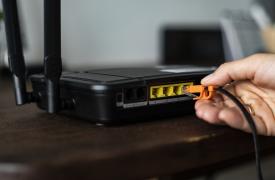Don’t become the next target

With so much of what we now do being web-based, it is no wonder scammers love it. It is easy to become complacent about the levels of security and habits of password settings, so here are some useful tips.
Internet scams happen all the time, no-one is safe. You just need to read the news to hear another big company has been affected and sometimes we don’t even know it’s happening. Most of the time it is happening under our noses and we rely a lot on other people to tell us an account has been hacked.
The rise in remote working due to the coronavirus crisis has had a significant impact on the revival of old malware. According to Malwarebytes' CTNT report, each of the older strains relies on social engineering and phishing campaigns to spread the attacks, something that is being mobilised to exploit a shift to mass remote working.
So, what can you do to help yourself?
The first, most basic of measures to prevent fraudulent activity and hackers from obtaining personal data, is to ensure you have up to date anti-virus software and a firewall installed on your computer.
Common sense does prevail but there are some other things you can do to keep yourself safe:
Manage your email folders and be wary of spam. Permanently delete the emails, otherwise, the scammer will continue to send emails to your account using different email addresses.
- If you receive an email from an unknown sender, it’s most likely to be spam, particularly if it’s not personalised - delete, delete, delete!
- Attachments are an easy way for scammers to hit your computer with a virus. If you receive an email with an attachment from someone within your contact list, but it’s not in keeping with what you’d normally receive from them, do not open it. The chances are it’s infected with a virus and forwarded through their email address without their knowledge, so let them know, so they can inform their other contacts.
- Buying online is a popular pastime and scammers love it too! Use secure sites – identified by https// at the beginning of the web address and be wary of those sites offering unusual payment methods – the chances are scammers are re-directing you away from the safe online site and your money will end up in their pocket.
- Don’t be fooled by a sophisticated website – many appear genuine and it’s easy to get hooked in, especially if you’re looking for concert and event tickets. There are so many ‘agent’s out there it’s difficult to know who is genuine and who isn’t, so it might just pay to spend a little extra on that all-important ticket for your favourite band!





